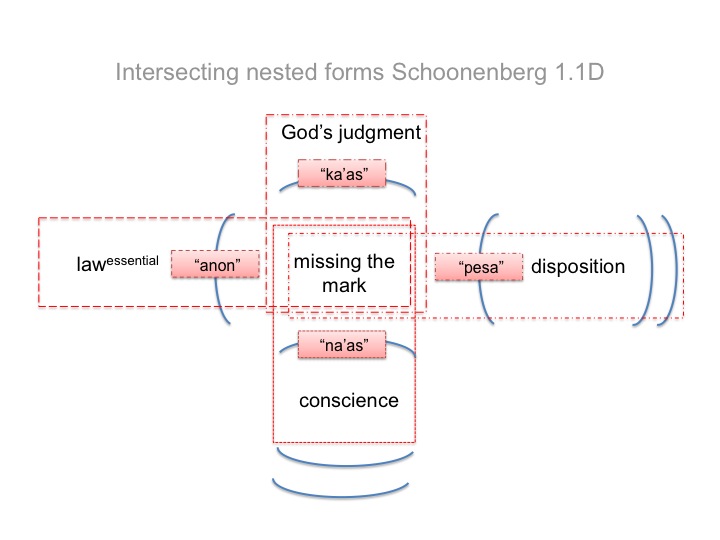Thoughts on Man and Sin by Piet Schoonenberg (1964) 1.1I1
I comment on the text. Pages 2-6. Comments on the text will appear in square brackets.
[How would “sin” as “opposed to God’s will” fit into the intersecting nested forms?
The New Testament delineates more explicitly than the Old Testament, the normal context of thinkgroup3 and the potential of consciencelacking1.
As seen in blog 1.1D, the Old Testament Hebrew words for “sin” captured the dynamic of one category emerging from the next lower category, along both the natural philosophic and the moral religious axes.
The parallel nested forms of the vertical axis, were not so apparent, even though the first commandment warned against other religions. The OT revealed the “sins” of kings and subjects, kingdoms and peoples, not a “sin” that is the principle of it all.
I suppose that Jews began to recognize the Christ when Jesus pointed to “sin” as a principle – or relation – between thinkgroup3 and thinkdivine1.]

